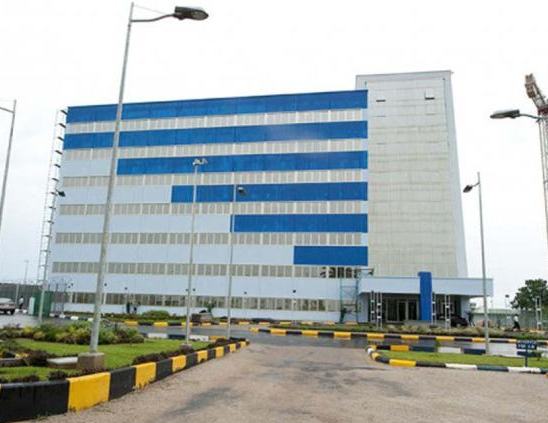INTELS trains fresh batch of 92 Women

INTELS Nigeria Limited has completed the training of a fresh batch of 92 women under its Women Empowerment Programme Scheme Synergy (WEPSS). A Corporate Social Responsibility programme of INTELS, WEPSS was established in 2013 with the vision of empowering 5,000 community women in the Niger Delta over a 20-year period, through training in fashion design and tailoring.
The successful trainees are the second batch of 110 intakes in 2018. A total of 77 women had earlier in the year graduated in the first batch of intakes.
But 18 year-old Joy Tom-West emerged the best performing trainee, winning a start-up kit which includes an industrial sewing machine, steam iron, chair, scissors, seam ripper, box of tailors’ chalk and a measuring tape.
Phillip Embleton, who represented the company’s Managing Director at the event, urged the graduates to use their newly acquired skills for the development of self and community. He also encouraged them to appreciate the dedication and hard work put in by their trainers over the course of the four months training under the programme.
Embleton said: “These are our successful candidates of the second session of the WEPSS scheme for 2018. I hope you give a big thank you to all your trainers because they have worked very hard.
“As you know, this is a community empowerment scheme, so I hope this training will help you in your careers and with your future lives; to use the skills that you have learned for good.”
Project Head of WEPSS, Nancy Freeborn, described the occasion as special because WEPSS had clocked five years in November.
She said: “This graduation is a special one for us because in November 2018, WEPSS turned five. We are very proud to be a part of the journey to success. This project was established in 2013 with the aim of empowering community women through the acquisition of tailoring skills. The project commenced on November 6, 2013 with an intake of 300 rural women.
“These women were trained for a period of nine months, using different specialised machines and after that, all were retained as factory hands. They remained at WEPSS, working and producing garments. It will interest you to know that WEPSS has produced over 50,000 garments over this period. We have been able to produce this much within our manufacturing infrastructure.”
Freeborn said that WEPSS has, over the years, increased its focus on training programmes while placing less emphasis on garment manufacturing. In this regard, she said the centre currently absorbs a minimum of 300 trainees annually, who are taught to produce different types of garments.
She said: “Through this scheme, INTELS has contributed to the national economy by continuously deploying materials and machines from the global market, thereby promoting Nigerian content development. You would be so amazed to see the types of garments that we have made here; all to international standards.”
Freeborn added that WEPSS also donates some of its products to charity homes.
“Every year, WEPSS makes thousands of garments for different charity homes. This year 1,050 garments were donated to the Compassion Centre for the Physically Challenged in Port Harcourt,” she said.
INTELS Regional Human Resources Manager, Micheal Ndon, who was represented at the event by Gabriel Chujor, said: “It is amazing to see what you have done here. All the trainees have done so much. Opportunity has been given to you and you must grab it with two hands. Regardless of your circumstances, all of you have done exceedingly well. What we expect of you is to hear great things from you in the next few years to come. Don’t let your time here be wasted. INTELS has assisted you; it is now left for you to go out there and do your best.”









0 Comments